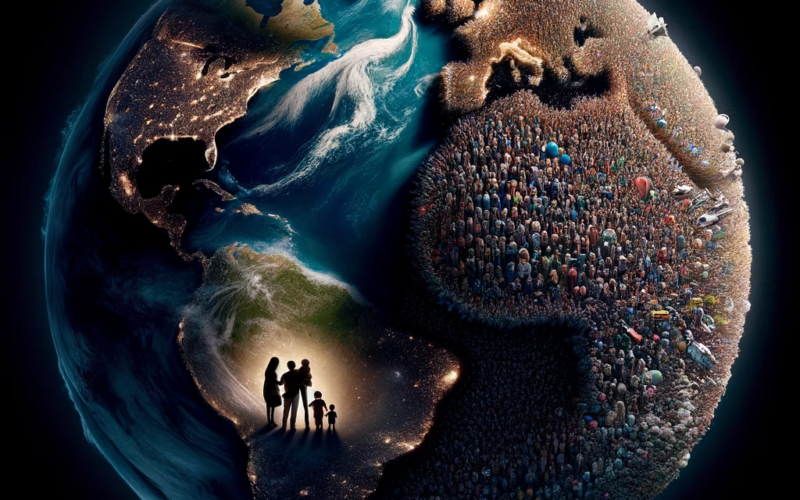Controcorrente: Il Paradosso delle Politiche Pro-Nataliste in un'Epoca di Crisi Climatica
In a world grappling with an unprecedented climate crisis, the insistence of some politicians on pro-natalist policies is not just anachronistic, but dangerously short-sighted. As our planet’s resources face unprecedented pressure, the push for higher birth rates reveals a bitter irony and a concerning contradiction.
Earth, already burdened with nearly 8 billion inhabitants, is not merely a matter of numbers. Each new birth represents not just another human to nourish, but also a new consumer of increasingly scarce resources. In this context, the solution to a demographic crisis cannot be the same as in an era when the Earth seemed an inexhaustible treasure chest.
This contradiction highlights not only a lack of long-term vision but also ignorance of the environmental challenges our planet is facing. Beyond demographic and environmental aspects, a deeper issue emerges: the right to individual freedom. The decision to have children is one of the most personal and intimate, and imposing or incentivizing this choice through state policies represents a violation of the sacred space of personal freedom.
Attempts to interfere in reproductive decisions not only breach the bounds of personal independence but also overlook the multitude of reasons people choose not to have children, ranging from personal preference to economic considerations, from mental health to the desire to contribute to society in ways other than procreation.
In an era where the fight for women’s rights and access to education and work have broken many old patterns, the recent trend of some governments to incentivize childbirth risks taking us back in time. This pressure, though masked as incentives and seemingly positive policies, could echo the ancient and patriarchal canons of “female duty.”
Now more than ever, it is crucial to recognize and support every individual’s freedom of choice, whether woman or man, regarding procreation. Pro-natalist policies should never become a tool to limit this freedom or impose outdated life models. Instead, they should focus on support and assistance for families, regardless of their choice to have or not have children.
True emancipation and societal progress are measured in the ability to respect and value individual choices, without falling into the traps of a past we have worked hard to overcome. In conclusion, the path to a balanced and sustainable society does not lie in intruding into reproductive decisions, but through education, respect for individual choices, and investment in policies that improve the quality of life for all.












